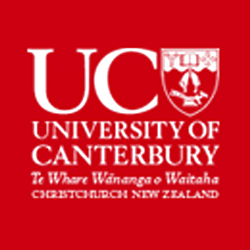
Addressing common student problems with assessment – Support staff perspectives
Status
Completed: 13 May 2016
Project Details
A one-year project, undertaken by the University of Canterbury, to identify common problems that students transitioning from secondary school into large first-year university classes encounter with regards to assessment and the likely causes of those problems.
Aims:
The main aims of the project were to:
- identify common student problems with assessment at university
- strengthen academic support for students navigating their transition
- assist teaching staff in designing assessment tasks that avoid or mitigate the most common student problems
- help the university improve its academic processes to help students be more successful
- provide better information for secondary students, their parents and teachers for preparation for tertiary study.
Methodology:
A mixed method approach was used including:
- a literature review
- semi-structured interviews to identify student issues with assessment and the academic skills needed for success.
Research questions:
- What in your view are the most common issues students have with assessment, in particular in first year?
- What in your view are the underlying causes for these issues?
- What can we (lecturers, support staff, the university in its processes and regulations) do to alleviate those issues?
Team

Dr Erik Brogt
Project leader
University of Canterbury
Dr Valerie Sotardi
University of Canterbury
Angel Nicholson
University of Canterbury
Cameron Scott
University of Canterbury
Ripeka Tamanui-Hurunui
University of Canterbury
Nick Ford
University of Canterbury
Liz Keneti
University of Canterbury
Waleed Wahsh
University of CanterburyStatus
Funding
$12,560.00 (excl GST)
Key Findings
The key findings from the project were:
- High school to tertiary assessments represent an abrupt, unclear and substantial shift: first year students tend to struggle with assessments due to large discrepancies in the academic tasks used in high school when compared to university. Among the most commonly referenced problems are recognisable differences in assessment methods between secondary and tertiary classrooms. First-year students often have an unrealistic or inaccurate expectation about university.
- Students lack transferable skills: generally, transferrable skills comprise poor or weak understanding of how to learn. First-year students generally have limited understanding of what it means to be an independent, self-regulated learner.
- Students have weak or inadequate discipline-specific skills: many students enter university without having taken appropriate coursework in high school.
- There are issues with the design of assessments: poorly written or ambiguous instructions can quickly lead to frustration. Problems arise when instructions either lack enough information for the student to fully understand task criteria, or, alternatively, provide too much information so the student is overwhelmed with details.
- Students experience unsupportive learning climates: transitioning students often do not feel comfortable asking the lecturer for clarity. They often lack information about university processes and procedures.
Key Recommendations
The key recommendations for learners (and their families), lecturers, support staff and institutions to consider from the project were:
Share accurate expectations about university | Extend the student orientation period to better familiarise students with the university environment and what it means to engage in university-level study.
Enhance solid transferrable skills | Communicate to students in individual course outlines, what transferrable skills will be required in a course. Teaching staff should familiarise themselves with the New Zealand secondary school system and NCEA requirements.
Develop strong discipline-specific skills | More and closer collaboration between student liaison, academic advisors and academic units will ensure secondary students receive consistent simultaneous advice.
Design and communicate clear, effective assessments | Develop closer collaboration between academics and support staff to ensure that assessments are clear to students. Provide no more than two pages of instructions.
Cultivate a supportive learning climate | Develop a deeper understanding of students’ social and cultural backgrounds, and how these influence assessment (e.g. group work versus individual assessment).
A research report prepared by Valerie Sotardi and Erik Brogt.
(PDF, 780 KB, 25-pages).
- 25 May 2015